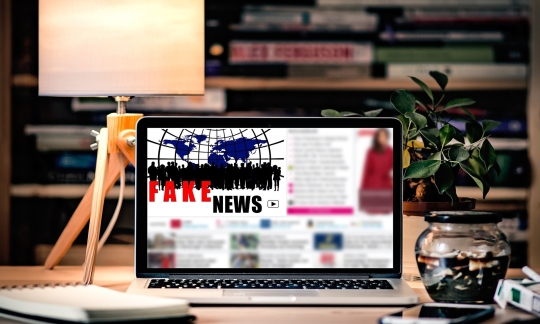Archives: Research
Influence industry digital platforms, technologies and data in the General Elections
Date Posted:
June 8, 2019
Last Modified:
June 8, 2019
Real solutions for fake news?
Date Posted:
June 8, 2019
Last Modified:
June 8, 2019
Fake news propagate differently from real news even at early stages of spreading
Date Posted:
June 4, 2019
Last Modified:
June 4, 2019
The safety of digital democracy
Date Posted:
June 3, 2019
Last Modified:
June 3, 2019
Contextualising Fake News in Post-truth Era
Date Posted:
June 3, 2019
Last Modified:
June 3, 2019
Making sense of media lies
Date Posted:
June 3, 2019
Last Modified:
June 3, 2019
Anatomy of fake news
Date Posted:
June 1, 2019
Last Modified:
June 1, 2019
Fake news as a two-dimensional phenomenon
Date Posted:
June 1, 2019
Last Modified:
June 1, 2019
Fake news threatens a climate literate world
Date Posted:
June 1, 2019
Last Modified:
June 1, 2019
Politics of fake news
Date Posted:
June 1, 2019
Last Modified:
June 1, 2019
Latest News
- Ad transparency tools will help users have a check over political ads in India
- Social media prone to more misuse and spread of misinformation at times of elections
- Facebook, Twitter and WhatsApp remove 500 posts in the last 48 hours
- Facebook adds a new feature to tackle "low-quality" content
- Fake news rampant with 1 in 2 Indians receiving it via WhatsApp, Facebook
- Facebook rep lands up at FB user's doorsteps
- FB takes AI help to shut down accounts spreading misinformation
- Facebook bans white extremist content in the US
- Users won't be added to WhatsApp groups without their consent
- WhatsApp launched Tip line ahead of general elections
Latest Controversies
- Facebook, Google pressured EU expert group to soften fake news regulations
- Facebook patent plans to scan users' photos for ads
- Facebook bans white nationalist and separatist content
- Almost 9% of Facebook accounts are fake, says company
- Facebook stored millions of passwords unprotected
- Facebook caught lobbying against data privacy laws
- Apps share sensitive user data with FB
- News algorithm draws ire from advertisers
- Facebook users cannot avoid location-based ads
- Facebook exempts tech giants from privacy wall
Featured Investigation
Featured Article



